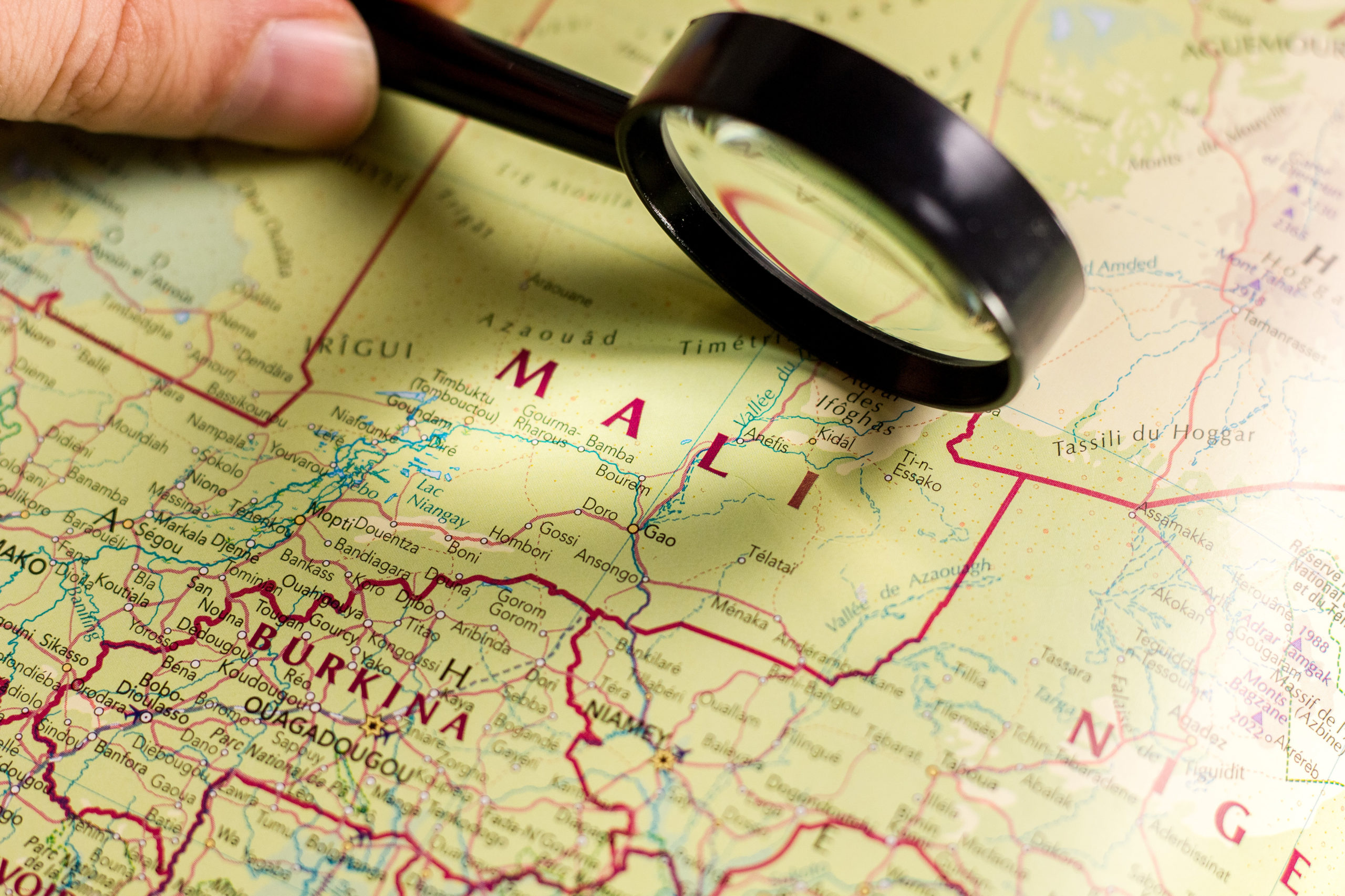A nation must think before it acts.
On August 18, Mali’s President Ibrahim Boubacar Keita was overthrown in a coup d’etat led by breakaway elements of the Malian Armed Forces. The United Nations (UN) swiftly condemned the coup, and the Economic Community of West African States (ECOWAS) immediately halted trade relations with Mali. In the following days, reports proliferated about a covert alignment between Russia and Mali’s coup plotters. These reports were premised on the fact that two of the coup plotters, Malick Diaw and Sadio Camara, had returned to Mali days earlier from a training program at the Higher Military College in Moscow. Prominent Russian State Duma member Oleg Morozov refuted these allegations on August 22 by stating, “Any talk that Russia was somehow involved in the August coup looks ridiculous.”
Although there is insufficient evidence to make a conclusive determination about the Kremlin’s role in the coup, Russia is a potential geopolitical beneficiary from Mali’s political transition. In contrast to France, which cultivated close relations with Keita and has seen its political leverage in Mali dwindle as a result of the coup, Russia has immediately established cordial relations with Mali’s transitional government. On August 21, Russian Ambassador to Mali and Niger Igor Gromyko met with representatives from the National Committee for the Salvation of the People (CNSP). The CNSP is an umbrella organization of military personnel involved in the coup, which wishes to oversee an 18-month transition before returning power to civilian authorities. Russia also signed a military cooperation agreement with Mali in June 2019, which consolidated its ties with Malian military figures that ultimately supported the coup.
Russia is also viewed favorably by Malians who view France’s Operation Barkhane counterterrorism initiatives in the Sahel as a guise for neocolonialism. In November 2019, demonstrators in Bamako urged Moscow to repel Islamist attacks in Mali like it did in Syria. Prominent opposition figures, such as the leader of the African Solidarity for Democracy and Independence Party Umar Mariko, have actively courted Russian arms and technical support. At the Independence Square demonstrations in Bamako that followed the coup, protesters were spotted waving Russian flags and holding posters praising Russia for its solidarity with Mali.
Since Russia possesses a diverse array of partnerships in Mali and Sahel countries are frustrated with the counterterrorism policies of Western powers, Moscow could leverage the Mali coup to secure economic deals and bolster its geopolitical standing in West Africa. Kremlin-aligned research institutes and media outlets have consistently framed France’s counterterrorism operations in Niger and Mali as a façade for the extraction of the Sahel’s uranium resources. Russian nuclear energy giant Rosatom, which directly competes with its French counterpart Avenda for contracts in the Sahel, could benefit from favorable relations with Mali’s new political authorities. Nordgold, a Russian gold company that has investments in Guinea and Burkina Faso, could also expand its extraction initiatives in Mali’s gold reserves.
As West African countries are increasingly concerned about regionwide instability emanating from the Mali coup, Russia has tried to position itself as a counterinsurgency partner for countries in the region. In a September 9 interview with Sputnik, Cote d’Ivoire’s Ambassador to Russia Roger Gnango called for increased military cooperation with Russia, due to instability resulting from the Mali coup. Although Russia is unlikely to deploy private military contractors (PMCs) to the Sahel, it could leverage instability resulting from the Mali coup to sell arms and expand the strategic depth of its military cooperation agreements with Burkina Faso, Chad, Mali, Mauritania and Niger.
Although Russia might benefit economically and geopolitically from the Mali coup, the impact of Keita’s overthrow on Moscow’s relationships with France and China remains uncertain. In order to stem the tide of instability in the Sahel, France could expand its support for authoritarian leaders, such as Chad’s President Idriss Deby, who also have close relations with Russia. As Franco-Russian dialogues on Syria, Libya, and cybersecurity have continued in spite of tensions over Alexei Navalny’s poisoning, France and Russia could conceivably deepen their engagement on Sahel security. On the other hand, however, French Defense Minister Florence Parly is skeptical of Russia’s ability to stabilize the Central African Republic, and similar views on Sahel security might prevent Franco-Russian cooperation on managing the Mali coup’s impact.
As China wishes to include Sahel countries in the Belt and Road Initiative (BRI) and has increased its investments in neighboring Burkina Faso due to the country’s suspension of relations with Taiwan, Beijing views the Mali coup with consternation. As institutionalized dialogue between Russia and China on African security issues is limited, Moscow could leverage the Mali coup to demonstrate to Beijing that it can constructively contribute to regional security. However, if evidence of Kremlin involvement in the Mali coup mounts, Chinese concerns about Russia’s destabilizing conduct in Africa could become a source of discord between the two.
Due to its balancing strategy in Mali and the stagnant progress of Western counterterrorism efforts, Russia could leverage the coup as a means of expanding its economic and security links in the Sahel. As Russia tries to capitalize on rising instability in the Sahel, it will cautiously monitor France and China’s reactions to its policies. As other great powers are forced to recalibrate their approaches to counterinsurgency in the Sahel, Russia could be a rare geopolitical beneficiary from Mali’s security crisis.
The views expressed in this article are those of the authors alone and do not necessarily reflect the position of the Foreign Policy Research Institute, a non-partisan organization that seeks to publish well-argued, policy-oriented articles on American foreign policy and national security priorities.




